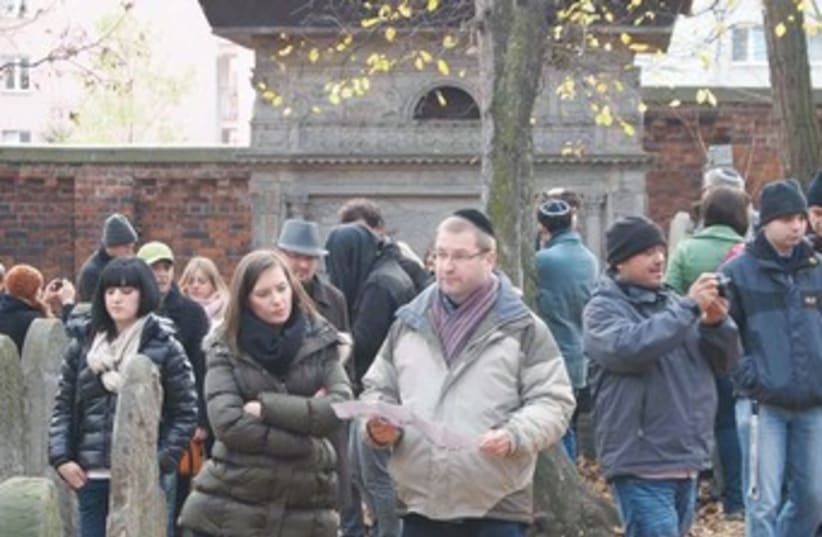I am preparing for yet another visit to Jerusalem. As I am packing my things and sending those final work emails, I remember the first time I spent Shabbat in our capitol. I was walking along Emek Refaim as the Shabbat siren sounded, and though I knew it was coming, I was far from prepared. I got a lump in my throat, a lump that turned into tears, rolling silently down my face. So this is what it’s like, I thought. This is what it’s like to be home. To be one among many, no longer an anomaly or a threat.
My journey to Jerusalem had started nearly ten years earlier. A child of assimilation, a baalat teshuva (Jew who turns to embrace Orthodox Juadaism) of sorts, I became an activist for Israel and for the Jewish people. I had seen first-hand what happens when you try to become less of who you are in order to survive and as I saw it happening in my country, and all over Europe, I felt it was my duty to react.
When I came back from that trip I took a walk through my small, Swedish town - a sleepy haven outside of Stockholm. It is the home of one of Sweden’s oldest synagogues, a beautiful building, cloaked in history. Like other European shuls built during that period, it has church-like features. The bima built like an altar, a giant organ placed at the back, rich in nationalist tapestry.
`I took pictures of the synagogue and posted them on Facebook. The first comment I got on the picture complimented the Jewish population of my town for being so well integrated, for taking such measures to blend in to their Lutheran surroundings, as to not cause “unnecessary problems”, as the commentator put it.That comment stayed with me, all through the weekend.
Well integrated, what does that really mean?
Is it being a safe Woody Allen-esque Jew, but not scarily orthodox?
Playing klezmer music, but refraining from kosher slaughter and brit milah?
I guess this is the issue.The core of what bothers me about Swedish Jewry. We let others define how Jewish is too Jewish. And then, what remains, after it has all been watered down? When we have let traditional become a four letter word, religion is a plague and the road to acceptance is somewhere south of extinction?Becoming a monument is easy. It happens when we aren’t looking. We let go of one thing. Then another, and another and then one day our synagogues are museums and every chag is a cultural event and every possibility an excuse.
It is up to us to secure our survival, to keep our traditions and our heritage intact.
Synagogues cannot become secular town halls in the name of liberalism, nor can they be allowed to be closed-off memorials with golden plaques, telling stories of Jewish life lost.
If we, the Jews in the diaspora, do not meet this challenge of survival, there are others who are more than willing to own our fate. And their protection is not on our terms, nor is it in our best interest. If it is left up to them we will be turned into the version of ourselves that they can live with.
So when we are being commended on our ability to blend in and go unnoticed it is time to react, and to do so with power and purpose.
For those are words of warning.
Reading study after study telling me that European Jewry is condemned, hiding from its own shadow and is assimilating into the masses I can’t help but think that maybe the Jews of Europe never really left Egypt. Our rights are, yet again, being taken away and yet we choose the slavery we know over the freedom we don’t?As a community and as people, we have to decide. Will we choose to die by the hand of our master in the land of Egypt? Is it enough to sit by pots of meat, to eat bread to our fill?
What I wish for us now is to not be afraid.
I wish that we be visible. Identifiable. Proud and alive.
I wish that we choose freedom over slavery at every turn and that we stay loyal to the truth that we were given, all that time ago.
Because life, much like the reading of the Torah, is cyclical. We stand together at that sea, yet again, faced with the choice between slavery and freedom, pride and assimilation, between Pharaoh and fight.And for European Jewry, this is the time to fight.
It is the key to our survival. No more, no less.
To not keep one thing, but everything.
To not gather on one day, but every day.
So that when they tell us: "Hey, you’ll be accepted if you compromise"; when they promise us we can stay if we just change one more thing. Our answer must be a resounding NO.
For if we are not for ourselves, who will be for us? And if not now, when?
The synagogue by my house is closed now. They held their last Shabbat service here almost 20 years ago. The gate has a chain on it, held together by a brass plaque.
It tells me that once, there was Jewish life here.
Annika Hernroth-Rothstein is a political adviser, writer and activist. An alumni of the Young Jewish diplomatic seminar (organized by the Mizrad Hahutz) and Tikvah seminars in NYC. She lives in Stockholm, Sweden, with her two children. Follow her on Twitter.
